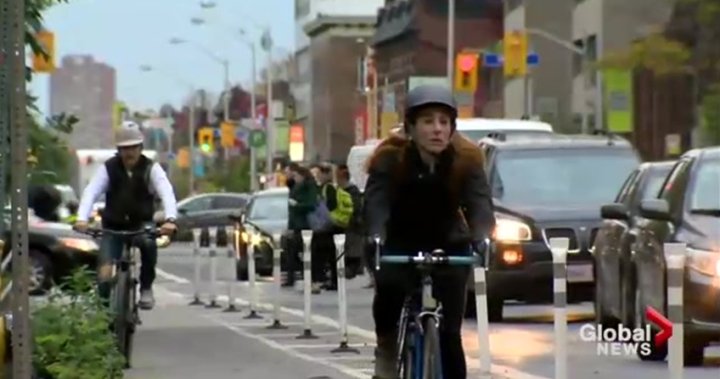The law, Global News has learned, is currently set to be titled the Reducing Gridlock and Saving You Time Act and could be presented when the legislature returns at the end of October. Primarily aimed at drivers, it will include new provincial requirements on bike lanes.
…
The specifics of the legislation have not been made public but sources told Global News said the government was considering restrictions on towns and cities removing existing lanes of traffic to create bike lanes.
Absolute clowns.



Let me tell you how primary lane travel works out in the US. Drunks, elderly, distracted drivers, and raging truck man-children run the cyclists over. Go for it though!
Let me tell you how primary lane travel works in civilised countries: drunks and the others you mentioned end up in a canal, stranded up on a meridian, or crashed into a bollard.
That’s because they do more there than just say “share the lane” and call it a day. They narrow the road to almost exactly the width of a typical car using unforgiving barriers like bollards, medians, and 5m deep canals. They restructure the roads so they aren’t straight throughways, but brick-paved, winding pathways through the city.
They turn roads into obstacle courses, calming traffic, because as we all know, drivers may not be worried about killing cyclists, they’re horrified by the idea of scratching their paint.
They still have drunks of course, but they’re typically on bikes (since driving is so impractical), and they too often end up in a canal.
Here’s a decent example from Amsterdam where they effectively have 3 classes of road:
That last category is the majority over there, and a big reason why the city is so safe and quiet… unless it’s King’s Day or New Years eve. Then these spaces are flooded with loud, drunk pedestrians or children shooting fireworks at random. On those days I recommend trips out of town ;-)
Narrowing and traffic calming urban roads to where cars cannot pass cyclists would be a very difficult battle in Ontario where full sized fire engines respond to every call including for paramedics, demanding wide roads. Traffic calming has been fought tooth and nail by HOAs and many of the urban roads are stroads which cannot legally be traffic calmed with a 70km+ speed limit.
Sharing traffic between cyclists and motorists has been absolutely deadly and most people will not even attempt to ride a bicycle unless they hahe dedicated infrastructure in Ontario which Ford is trying to make illegal. Even if you follow your proposed vehicular cycling, the proposed legislation makes that more difficult too.